Return of the Raven
or Bird’s Eye View
[This post has been refined and included in Sweet Counsel: Essays to Brighten the Eyes.]
Continue reading
[This post has been refined and included in Sweet Counsel: Essays to Brighten the Eyes.]
Continue reading
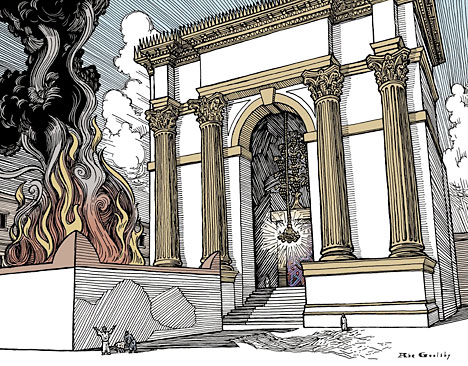
This post concerns the Covenant-literary structure of 2 Thessalonians 2. The context and audience are first century, but it amazes me how willing we modern Christians are to do intricate hermeneutical acrobatics to avoid the obvious conclusion that the particular “coming” of Christ referred to here was also a first century event – the end of the Old Covenant in AD70.
A reasonably close look at the text makes it inescapable. A very close analysis makes it inexcusable, especially once we are versed in the literary mechanics of the Bible Matrix. Continue reading
1 Peter 2:4-10 | Sermon Notes
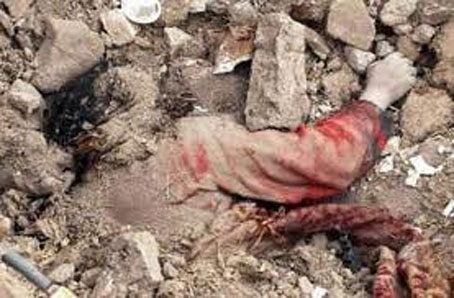
6 For in Scripture it says: “See, I lay a stone in Zion, a chosen and precious cornerstone, and the one who trusts in him will never be put to shame.”
The first mention of a cornerstone is in Job 38. The Lord sees the Land as the foundation of His Temple. The entire structure reflects the Covenantal nature of the act of Creation.
“…falling headlong, he burst open in the middle…”
Todd Robinson commented:
“I’ve enjoyed your particular brand of orthodox preterism. Working through Acts recently, I began to wonder what Michael Bull’s take on Acts 1:11 and 3:19-21 would be… Thanks for any insight.”
This post might seem irreverent, or stupid, or both, but humour me. It will help illustrate what I want to get into tomorrow.
The documentary on fractals featuring Arthur C. Clarke included some comments that applied the math to theology, which of course got me thinking. [1] The Mandelbrot Set is a simple formula, just like E = MC2. However, unlike Einstein’s equation, the equals sign in the centre is actually a two-way arrow, a to and fro.
Continue reading
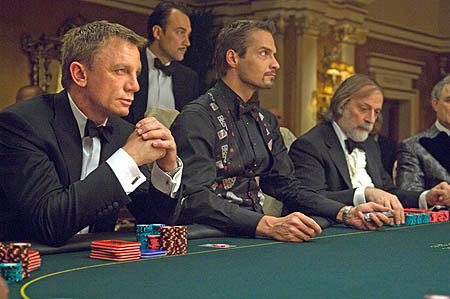
‘OPEN THEISTS’ TEACH THAT GOD CANNOT KNOW THE FUTURE. He gave human beings a true free will, so if God knows the future, human beings cannot truly be free. The Old Creation (the Old Testament) and the New Creation (a new humanity beginning with Christ) were thus both gigantic g ambles on God’s part. Does God g amble? After all, He commanded His priests to “throw the d ice.”
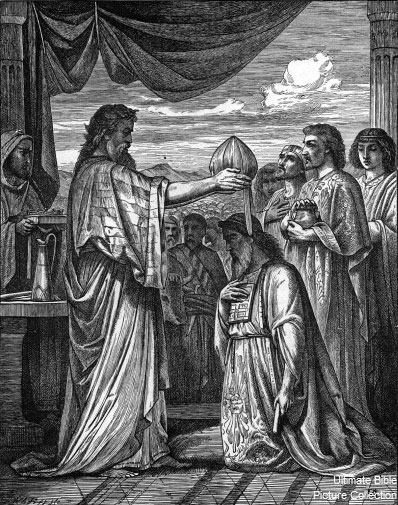
In Through New Eyes, James Jordan notes that the wilderness was Havilah, the place mentioned in Genesis 2 that was rich in raw materials. Israel stripped Egypt of her gold, then plundered the desolate places of hidden wealth. She came out of the desert with a High Priest clothed in gems, and a new generation of soldiers born of God’s threshing floor.
The manna began to fall just after the Hebrews’ victory over Pharaoh. As with Jacob, the Lord was faithful to provide for His chosen one. But perhaps, in covering the ground, there is also the idea of a firmament (this might sound strange to some readers, but I have found the concept is a frequent one). The wilderness is the place of the humble bread of priesthood, displayed in obedience to God. It was the next generation that would drink the wine of Canaan after obedience under Joshua.
The Lord commanded that some manna be put into the Ark as a memorial. Symbolising manna, the white stone is a memorial of faithful priesthood. Joshua’s crossing of the Jordan was memorialised by large, engraved, white stones.
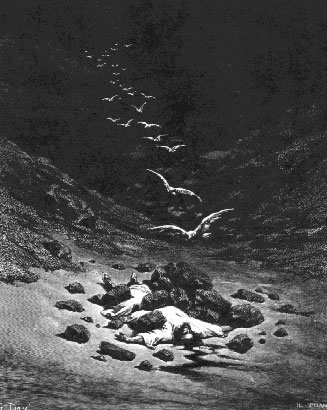
“And all Israel stoned [Achan and his family] with stones, and burned them with fire, after they had stoned them with stones.”
Questions from blogger Blue Ollie:
Many still claim to get their morals from the Bible. Well, what does the Bible actually say?
The following is a very incomplete list but is nevertheless a valid list.
1. How do you determine if someone is guilty? Answer: gamble.